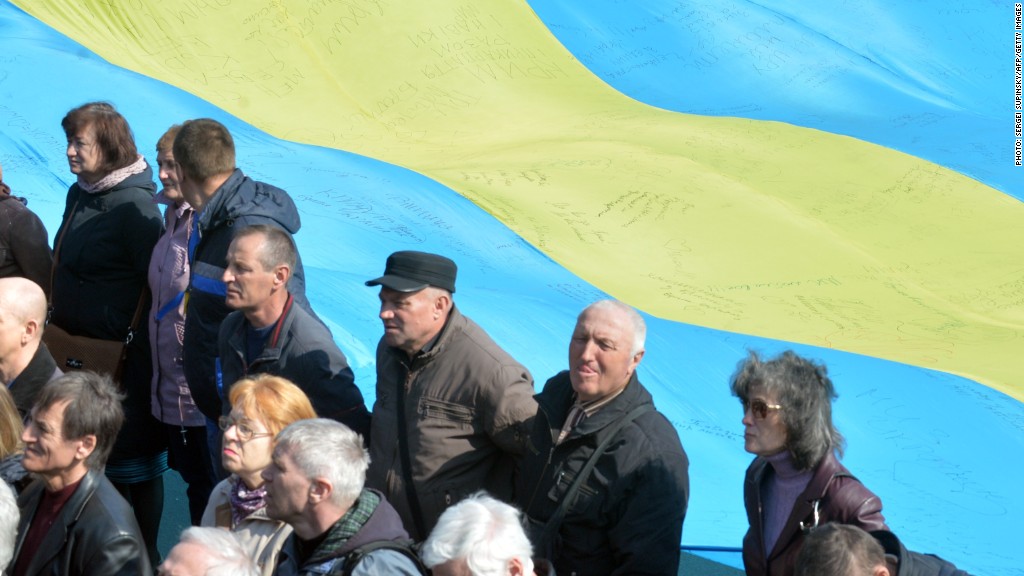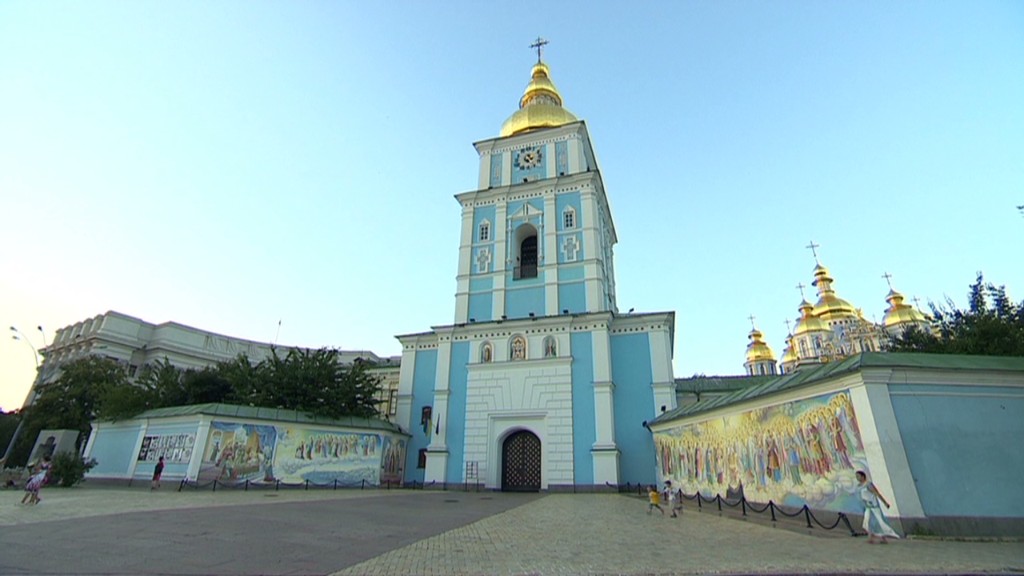
The International Monetary Fund has agreed to lend Ukraine up to $18 billion over the next two years as its new government tries to stave off economic collapse.
Kiev has been running dangerously low on cash to pay for imports and service its debts since the ousting of pro-Moscow former President Vitkor Yanukovych last month, which killed off a $15 billion financial lifeline from Russia.
With economic turmoil rising following Russia's annexation of Crimea, Ukraine was facing bankruptcy and a slump in output.
Foreign exchange reserves have been decimated by a sharp fall in exports and by attempts -- now abandoned -- to prop up the hryvnia currency. At the beginning of March, Ukraine had only enough cash to finance two months' worth of imports.
"The IMF package should be sufficient to prevent the country falling into a full-blown balance of payments crisis, in which the hrvynia would drop sharply and output would collapse," said William Jackson, emerging market economist at Capital Economics.
In return for the bailout, Ukraine will implement a program of unpopular reforms aimed at stabilizing the economy and creating the conditions for a return to sustained growth.
Related: Soros: Ukraine needs EU Marshall Plan
Central to the program are commitments by Ukraine to tackle corruption -- a major concern of international lenders -- and reforming the country's energy market, including the gradual withdrawal of subsidies on natural gas.
"Importantly, this will be accompanied by scaled up social protection to mitigate the impact on the most vulnerable," the IMF said in a statement.
Speaking to lawmakers, Prime Minister Arseniy Yatsenyuk said the reform program would include spending cuts that will cost 24,000 government jobs, higher rates of income tax, privatization and constitutional reform.
The economy would shrink by 3% this year, he forecast, if Ukraine enacted the reforms attached to the IMF package.
"If we do not, it is minus 10% GDP and default," he said.
Four million households would receive some form of government assistance, he added.
Yatsenyuk failed in his first attempt to win parliamentary support for the austerity measures Thursday, but won a narrow majority second time round, with 246 out of 450 lawmakers voting in favor.
The IMF said the focus for this year would be on stabilizing Ukraine's financial position. In 2015-16, spending cuts will be made at a pace "commensurate with the speed of the economic recovery and protecting the vulnerable."
The IMF has been burned in Ukraine before. A previous program was suspended in 2011 after the government failed to meet deadlines to raise household energy prices.
Ukraine's allies in the West are trying to strike a balance -- insisting on measures to make the economy more competitive, while avoiding the kind of harsh austerity that could provoke a popular backlash.
With Russian troops massing on Ukraine borders, Kiev will want to avoid stoking discontent in eastern cities such as Luhansk and Donetsk, which have substantial Russian minorities.
"Years of mass unemployment in Donetsk is not what Europe needs to keep the situation calm," wrote Berenberg chief economist Holger Schmieding in a note.
Related: Recession warning for Russia
Analysts estimate Ukraine needs $12 billion to $13 billion this year alone to pay for imports and service debt -- including a $1 billion bond falling due in June, and arrears on Russian gas imports.
The IMF loans, which need to be approved by the fund's board in April, could unlock financial help from other international organizations that was made conditional on an IMF deal, making for total support of $27 billion.

The EU has offered Ukraine financial assistance worth $15 billion over the next two years, in the form of loans, grants, investments and trade concessions. The U.S. has promised $1 billion in loan guarantees, and the World Bank is talking about backing infrastructure and social security projects worth $3 billion.
-- CNN's Victoria Butenko in Kiev and CNNMoney's Alanna Petroff contributed to this article.


